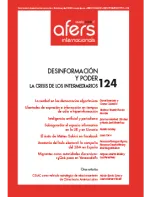Truth in algorithmic democracies

Public conversation has been digitalised. The internet offers us a horizontal, decentralised space with superabundant content, while at the same time a process of disintermediation has accelerated, ending the monopoly of the traditional interpreters of reality. Information and opinion are mixed and confused and new content is hybridised. The perception of facts is mediated by emotions and truths are chosen freely. This transformation is explained not only by the crisis in traditional media systems, but also by the new algorithmic order that largely controls the selective predetermination of information. How is the democratic system affected by public debate taking place in privately owned technological spaces? Who controls this digitised space? The true existential challenge posed to democracy by the creation of new power systems and new social inequalities will be settled by datafication and algorithmic governance.
Key words: disintermediation, post-truth, disinformation, politics, democracy, consensus, algorithm, data, digital acceleration
DOI: doi.org/10.24241/rcai.2020.124.1.11
>> The full text articles of this issue are available only in Spanish language
How to cite this article: Innerarity, Daniel y Colomina, Carme. «La verdad en las democracias algorítmicas». Revista CIDOB d’Afers Internacionals, n.º 124 (abril de 2020), p. 11-23. DOI: doi.org/10.24241/rcai.2020.124.1.11
Authors: Daniel Innerarity, Catedrático de Filosofía, investigador «Ikerbasque» en la Universidad del País Vasco, director del Instituto de Gobernanza Democrática (Globernance) y profesor del Instituto Europeo de Florencia y Carme Colomina, Investigadora especializada en Unión Europea, desinformación y política global de CIDOB (Barcelona Centre for International Affairs) y profesora del College of Europe (Bélgica).